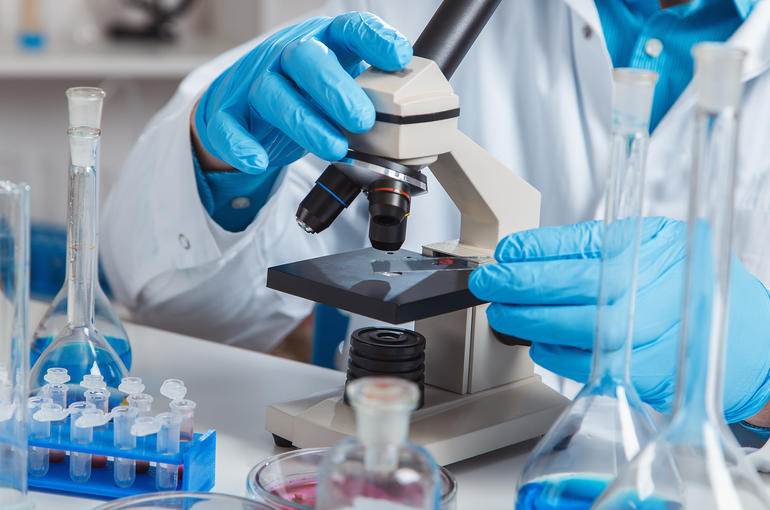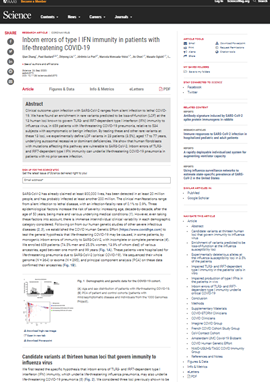Covid-19: First Research Results
15% of severe forms of the disease can be attributed to genetic and immunological anomalies.

Research by the Franco-U.S. team led jointly by Jean-Laurent Casanova and Laurent Abel and supported financially by the SCOR Corporate Foundation for Science could help to identify people at risk of developing a severe form of Covid-19, and thus to provide better care for this patient population.
Individual susceptibility to infection by the SARS-CoV2 virus varies significantly from one person to another. Establishing why is a key priority in the fight against the disease.
The team led by Jean-Laurent Casanova and Laurent Abel[1] has identified some initial genetic and immunity-related causes which account for 15% of severe forms of COVID-19. The patients concerned all have one thing in common: impaired activity of type I interferons - immune system molecules that usually play a powerful anti-viral role. These initial findings could be used to identify individuals at risk of developing a life-threatening form and to provide better care for this patient population. The results of this major investigation have been published in Science[2] magazine.
The SCOR Corporate Foundation for Science forms part of the SCOR group’s commitment to research and the dissemination of risk-related knowledge. It provides support to various scientific disciplines, with epidemiology being one of its priorities.
[1] St. Giles Laboratory of Human Genetics of Infectious Diseases, Rockefeller Branch, The Rockefeller University, New York, NY, USA. Laboratory of Human Genetics of Infectious Diseases, Necker Branch, INSERM U1163, Necker Hospital for Sick Children, Paris, France. University of Paris, Imagine Institute, Paris, France
[2] Qian Zhang et al.: “Inborn errors of type I IFN immunity in patients with life-threatening COVID-19”, and Paul Bastard et al.: “Auto-antibodies against type I IFNs in patients with life-threatening COVID-19”, Science, September 24th 2020
Read the articles published in Science Magazine
